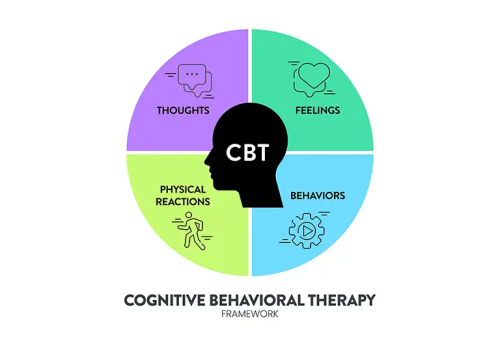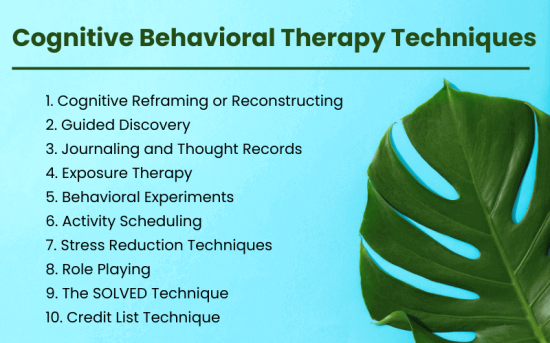Every child’s mind is unique — full of creativity, curiosity, and potential. But sometimes, growing up comes with emotional and behavioural challenges that can feel overwhelming, both for children and their families. Cognitive Behaviour Therapy (CBT) has emerged as a trusted, scientifically supported approach that empowers children to understand and reshape their thoughts, emotions, and behaviours.
In this comprehensive guide, we’ll explore what CBT truly means, why children might need it, the different types specially tailored for young minds, and the cognitive behaviour therapy techniques that transform struggles into strengths.
What is Cognitive Behaviour Therapy?
At its core, Cognitive Behaviour Therapy is a structured, short-term form of psychotherapy. It focuses on the powerful connection between thoughts, feelings, and behaviours. Unlike therapies that dwell mainly on the past, CBT helps children identify current negative or distorted thought patterns and actively replace them with healthier ones.
For example, if a child often thinks, “I always fail,” CBT helps them question this thought: “Is it really true that I always fail?” By exploring evidence and alternative perspectives, the child learns to replace it with balanced thinking, like: “Sometimes things don’t work out, but I also succeed at many things.”
This process not only improves mood and behaviour but also teaches lifelong emotional skills.

Causes of Cognitive Behavioural Therapy Needs in Children
Children might need Cognitive Behaviour Therapy for various reasons — often rooted in internal struggles or external circumstances. Common factors include:
- Anxiety Disorders: Constant worrying about school, friendships, or everyday events can overwhelm a child.
- Depression and Persistent Sadness: Negative thinking patterns may deepen feelings of hopelessness and withdrawal.
- Behavioural Issues: Challenges like aggression, frequent tantrums, or difficulty following rules may stem from unrecognised emotional distress.
- Post-Traumatic Stress: Exposure to events like bullying, accidents, or family separation can leave emotional scars.
- Obsessive-Compulsive Disorder (OCD): Repetitive, distressing thoughts and rituals can disrupt daily life.
- Low Self-Esteem and Social Challenges: Persistent negative beliefs about oneself often affect friendships and learning.
- Attention Difficulties (such as ADHD): Trouble focusing and impulsivity can be supported through CBT tools that teach planning and self-control.
Understanding these causes helps parents and caregivers see that seeking therapy isn’t about “fixing” the child but about giving them tools to cope, grow, and thrive.

Types of Cognitive Behavioral Therapy for Children
CBT isn’t one-size-fits-all. Therapists tailor it based on a child’s age, personality, and specific needs, making it adaptable and effective. Common types include:
- Individual CBT: One-on-one sessions build trust, allowing children to share feelings openly and practise skills with the therapist’s guidance.
- Group CBT: Children facing similar issues meet together, learning from each other, practising social skills, and realising they’re not alone.
- Family-based CBT: Parents (and sometimes siblings) participate to learn strategies, improve communication, and create a supportive home environment.
- Play-based CBT: For younger children, therapy often includes drawing, storytelling, and play to help them express feelings they can’t yet describe in words.
- Trauma-Focused CBT (TF-CBT): Specialised to gently help children process traumatic memories and replace fear and guilt with safety and resilience.
Each approach keeps sessions engaging and age-appropriate, ensuring therapy feels less like treatment and more like learning life skills.
Effective Cognitive Behaviour Therapy Techniques
What makes CBT especially powerful is its practical, easy-to-learn tools that children can use daily. Here are some widely used cognitive behaviour therapy techniques:
- Cognitive Restructuring (Thought Challenging): Teaching children to question automatic negative thoughts and find balanced alternatives.
- Behavioural Activation: Encouraging participation in enjoyable, meaningful activities to break cycles of sadness or avoidance.
- Exposure Therapy: Gradually and safely facing feared situations (like speaking in class) to reduce anxiety over time.
- Problem-Solving Training: Guiding children to break down big problems into small steps and think of different solutions.
- Relaxation and Mindfulness: Breathing exercises, guided imagery, and mindful awareness to calm body and mind.
- Social Skills Training: Role-playing to practise conversations, assertiveness, and reading social cues.
- Self-Monitoring (Thought Diaries): Encouraging children to keep track of moods, triggers, and thoughts to increase self-awareness.
These techniques empower children to feel more in control of their emotions and reactions, rather than being overwhelmed by them.

Why Cognitive Behaviour Therapy Works So Well for Children
Cognitive Behaviour Therapy is backed by decades of research. Its strength lies in its practical nature: children don’t just talk about feelings; they learn what to do with them. Key benefits include:
- Developing resilience and coping strategies for stress and setbacks.
- Learning to replace harmful self-talk with constructive thinking.
- Improving school performance and relationships by reducing anxiety and anger.
- Helping parents better understand and support their child’s emotional needs.
Importantly, CBT often shows measurable improvement within months, giving families hope and visible progress.
Conclusion
At Nurturers, we believe emotional health is as important as physical health. Cognitive Behaviour Therapy isn’t about changing who your child is—it’s about unlocking their inner strength, curiosity, and confidence. By understanding what CBT is, why it’s needed, its different types, and the cognitive behaviour therapy techniques it uses, families can take an informed, hopeful step toward their child’s well-being.
If you’d like to explore how Cognitive Behaviour Therapy could help your child, our experienced team at Nurturers is here to guide you on that journey.

